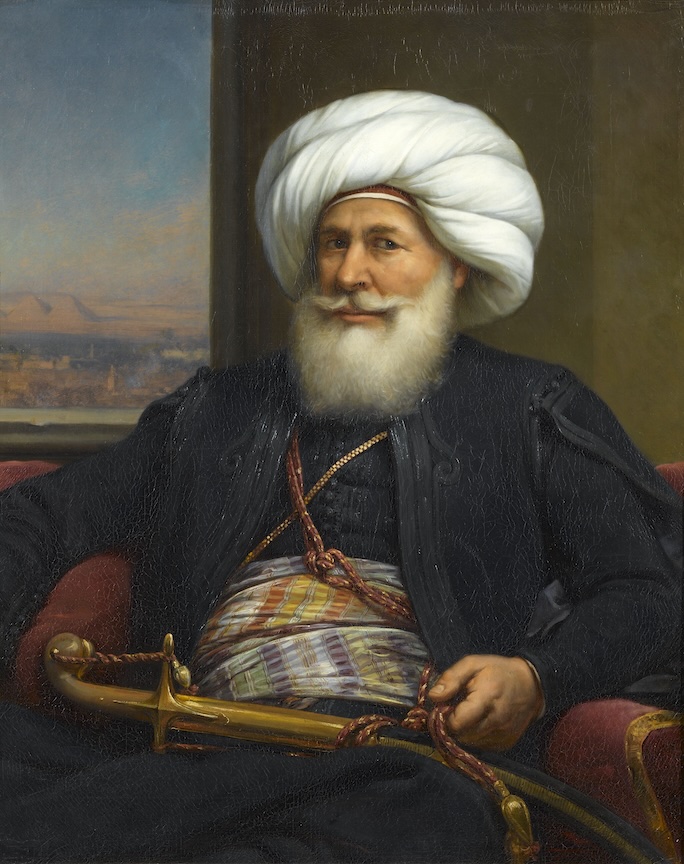Mehemet 'Ali (1769-1849)

Mehemet Ali, an Albanian militia officer turned viceroy of Egypt, rose to power during the French invasion of 1798. After supporting the Egyptians against the Mamelukes, he became viceroy in 1805. His reforms, including a standing army, irrigation improvements, and the annexation of Nubia, strengthened Egypt. Though he died in 1849, he left a legacy of modernization and increased power..
Born in the late 18th century in what is now Albania, Mehemet Ali found his way to Egypt in 1798 as part of a joint Turkish-Albanian military detachment. At the time, Egypt was in turmoil due to the French invasion led by Napoleon Bonaparte. This moment marked the beginning of Mehemet Ali’s journey to power, one that would leave an indelible mark on Egypt’s history.
Mehemet Ali initially entered Egypt as a soldier, but his leadership qualities quickly became apparent. He recognized the volatile political situation, with the French presence stirring unrest and the Mamelukes—a powerful military caste that had dominated Egypt—vying for control. Mehemet Ali cleverly aligned himself with the Egyptians in their struggle against the Mamelukes, a move that would cement his influence in the region. His strategic alliance and military prowess led to his being named viceroy of Egypt in 1805, a position officially approved by the Ottoman Sultan.
Once in power, Mehemet Ali embarked on a series of sweeping reforms that transformed Egypt. One of his most notable contributions was the creation of a standing army, which replaced the previous system of relying on mercenaries. This move not only secured his position but also gave Egypt a military force capable of defending and expanding its territory. Mehemet Ali modernized the army by introducing European training methods, weaponry, and tactics. His focus on military strength enabled Egypt to assert its power both regionally and beyond.
In addition to military reforms, Mehemet Ali implemented significant advancements in Egypt’s agricultural infrastructure, particularly in irrigation techniques. By improving Egypt’s ability to manage the Nile’s waters, he increased agricultural output, boosting the economy and solidifying Egypt as a vital grain supplier to Europe. These advancements laid the foundation for Egypt’s long-term prosperity and helped support his growing ambitions.
Mehemet Ali’s military and political successes extended beyond Egypt’s borders. One of his key accomplishments was the annexation of Nubia, a region rich in resources that further strengthened Egypt’s territorial control. His conquests and reforms gave him substantial power, so much so that many believed his ultimate goal was to seize control of Constantinople itself and become the ruler of the Ottoman Empire.
However, Mehemet Ali’s ambitions were not without their challenges. His accumulation of power eventually alarmed both the Ottoman Sultan and European powers. Despite this, his rule over Egypt remained secure until his health began to decline. Sadly, Mehemet Ali spent his final years battling mental illness, and he died in 1849.
 >
>